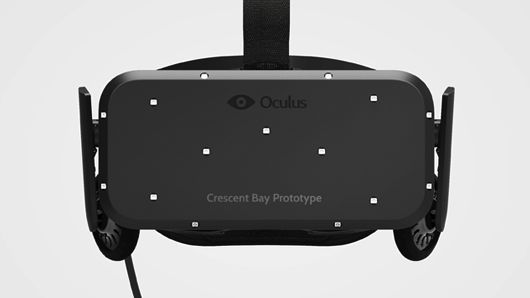Yes, Oculus is developing full, first-party Rift games
Not just Crescent Bay demos

Oculus VR's message for a long time was that it was a hardware company and it would leave creative development of games and other apps to third parties, but that message has changed.
At Oculus Connect 2014 on September 20, the company showed off a dozen or so demos developed by its new internal content team - and that's just the beginning, Oculus Rift creator Palmer Luckey told TechRadar during group interviews at the conference.
The Oculus-developed demos, which ranged from interacting with a friendly alien to almost being stomped on by a massive T-Rex, showcased what the newest Rift prototype - Crescent Bay - can do under optimal circumstances.
But Oculus's creative team has developed many more demos that weren't shown off, and more importantly, Luckey confirmed that the company is working on developing full first-party Oculus Rift games.
Setting the bar
Many game developers have begun experimenting in virtual reality with Oculus Rift, but Luckey understands that Oculus itself needs to set the bar for VR experiences.
"We'd done a lot of research on best practices, but it became clear that the only way we were really going to push our best practices forward was to eat our own dog food a bit and actually have a team that was actively working with our hardware, with our software, with our best practices, figuring out what works and what doesn't," he said.
"They've been working on a lot of things, including singular game experiences," he continued. "So yes, you will see real, actual first-party Oculus content."
Get daily insight, inspiration and deals in your inbox
Sign up for breaking news, reviews, opinion, top tech deals, and more.
One of those games is VR Quest, a reportedly "Zelda-like" title whose first level has previously been demonstrated on Samsung and Oculus's Gear VR.
"We're not saying it's the killer app or anything, but it's something that we put together and are continuing to put together, and we have a lot of other projects internally," Luckey said.
The next Doom
Luckey said Oculus VR's hiring strategy has been to first identify a need and then bring on the people needed to fill that role, which is how the creative team was born.
However he would not confirm whether Doom creator John Carmack, who currently serves as Oculus's Chief Technology Officer, is working on any games internally at Oculus.
He did have some advice for game developers working in VR: ditch the "jump scares" prevalent in the horror genre.
"It is very easy to get a negative reaction in VR, and that's cheap, and people who do it should feel bad because a strong reaction is not an earned reaction or a good reaction a lot of the time," he said.
He continued, "Getting someone to freak out, that doesn't take any artistic vision, it doesn't take any style. It doesn't take any skill. You just have to have something, and then something loud and very different has to come up briefly. And that will freak anyone out.
"In a VR headset you're strapped in and there's no way to escape. And I know people are like, 'Oh, that makes it even better,' But I'd say jump scares have no place in virtual reality."
Michael Rougeau is a former freelance news writer for TechRadar. Studying at Goldsmiths, University of London, and Northeastern University, Michael has bylines at Kotaku, 1UP, G4, Complex Magazine, Digital Trends, GamesRadar, GameSpot, IFC, Animal New York, @Gamer, Inside the Magic, Comic Book Resources, Zap2It, TabTimes, GameZone, Cheat Code Central, Gameshark, Gameranx, The Industry, Debonair Mag, Kombo, and others.
Micheal also spent time as the Games Editor for Playboy.com, and was the managing editor at GameSpot before becoming an Animal Care Manager for Wags and Walks.
